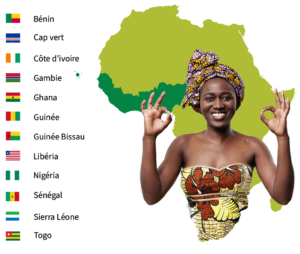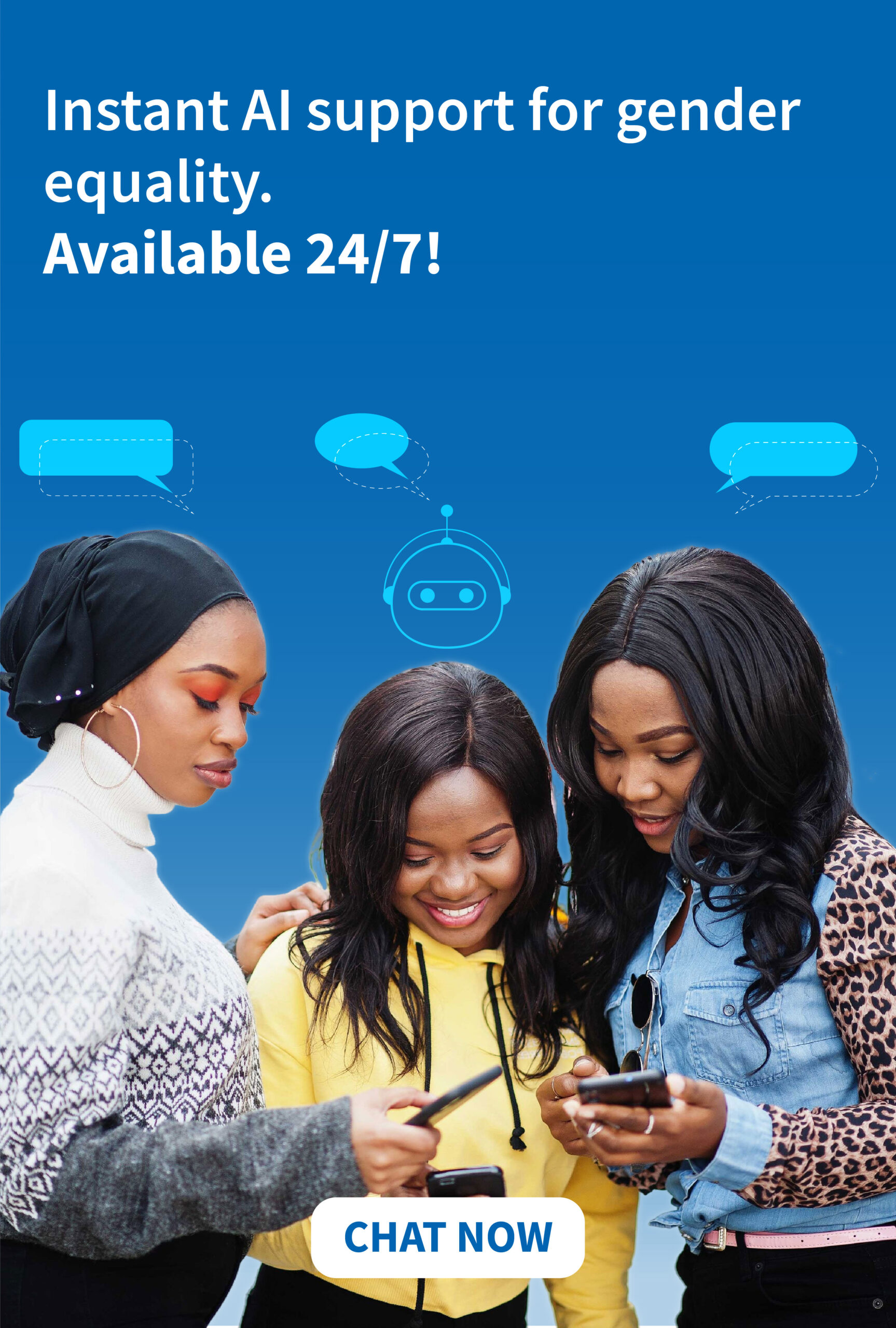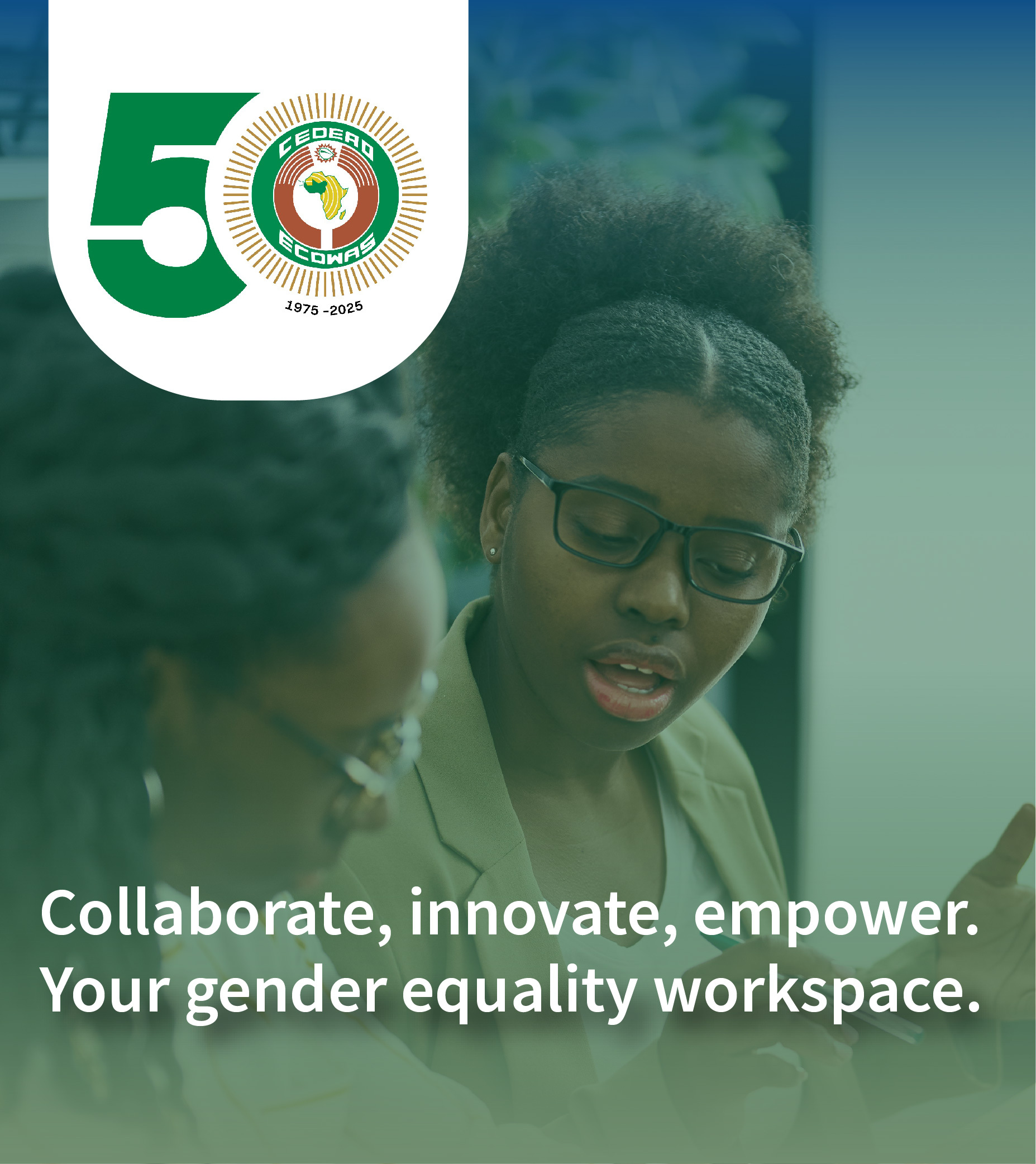Women Peace and Security in the Sub-region

In 2010, the EGDC, in collaboration with the United Nations Office for West Africa, developed a Regional Action Plan for the implementation of United Nations Security Council Resolutions 1325 and 1820. The main objective of this action plan was to provide ECOWAS with a regional framework to ensure the active participation of women in conflict prevention and management processes by strengthening their capacities, as well as protecting women and children during armed conflicts. This plan concluded at the end of 2015, and ECOWAS and its partners subsequently initiated a process to develop a new regional action plan following a final evaluation.
The EGDC was also instrumental in creating two major networks of civil society organizations whose mission is to support the integration program and political and social stability within the ECOWAS space. Specifically, these are the Women’s Peace and Security Network in the ECOWAS space (REPSFECO) and the West African Network of Young Women Leaders (ROAJELF), which today constitute two prominent flagship organizations in the sub-region. Their interventions in conflict prevention, peacekeeping and consolidation, mediation, the promotion of female leadership, support for good governance, and citizenship issues, among others, are widely recognized.
The cases of monitoring and early warning during elections in West Africa, as well as the missions conducted by REPSFECO in conflict-affected countries, eloquently demonstrate the EGDC’s commitment to addressing peace and security issues in the sub-region alongside local populations and civil society actors.
 Also, in the context of peace and security, the EGDC, in collaboration with the Women for Africa Foundation of Spain, initiated a project titled “Malian Women in Action for Peace.” The primary objective of this project was to strengthen the capacities of Malian women in mediation and peace dialogue and to enhance their project development skills in order to promote peace, reconciliation, and intercommunity dialogue in Mali. The project comprised three components: stakeholder consultations; needs assessment and mapping of target groups; and training in mediation and peace dialogue.
Also, in the context of peace and security, the EGDC, in collaboration with the Women for Africa Foundation of Spain, initiated a project titled “Malian Women in Action for Peace.” The primary objective of this project was to strengthen the capacities of Malian women in mediation and peace dialogue and to enhance their project development skills in order to promote peace, reconciliation, and intercommunity dialogue in Mali. The project comprised three components: stakeholder consultations; needs assessment and mapping of target groups; and training in mediation and peace dialogue.
Thanks to the involvement of the EGDC in operations related to the prevention, maintenance, and consolidation of peace and security, ECOWAS is positioning itself as a leading institution in the sub-region. Its inclusive approach to conflict prevention and resolution has established it as a key interlocutor for international organizations working to integrate gender into their interventions.
Related News
La CEDEAO lance officiellement l’écosystème digital du ccdg à Saly-Portudal, Sénégal
Le Centre de la CEDEAO pour le Développement du Genre (CCDG), sous le leadership de Prof. Fatou SOW SARR, Commissaire...
ECOWAS promotes the gender equality seal for public institutions (GES-PI) within its Bank for Investment and Development (EBID) in Lomé
The Conference Hall of the ECOWAS Bank for Investment and Development (EBID) hosted, on Wednesday 17 December 2025 in Lomé,...
A new stage in the partnership between the ECOWAS gender development centre (EGDC) and the Folke Bernadotte academy to strengthen the peace and security architecture in west Africa
On the 10th of December 2025 in Abuja, Federal Republic of Nigeria, Prof. Fatou SOW SARR, Commissioner for Human Development and...
ECOWAS trains judicial, health and social actors in Liberia on preventing and responding to GBV and sexual harassment in Monrovia
The Economic Community of West African States (ECOWAS), through its Gender Development Centre (EGDC) organised a national training workshop on...
ECOWAS-AECID coordination meeting: reviewing cooperation and planning for 2026
The Economic Community of West African States (ECOWAS) and the Spanish Agency for International Development Cooperation (AECID) held a virtual...




